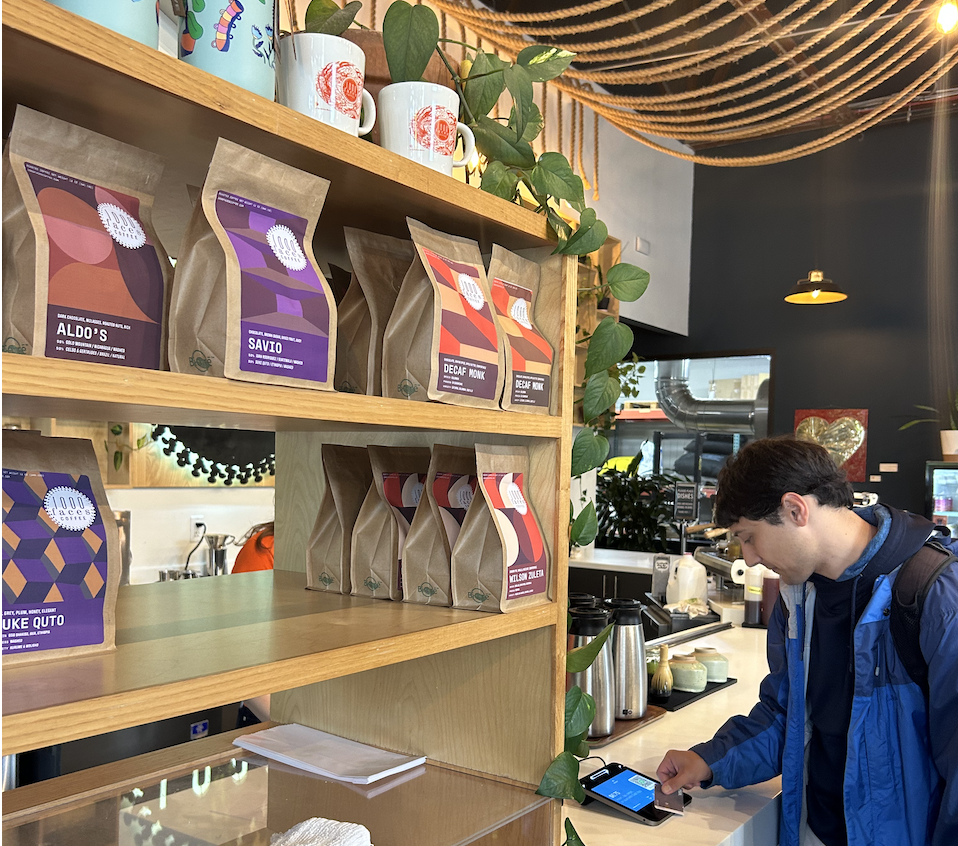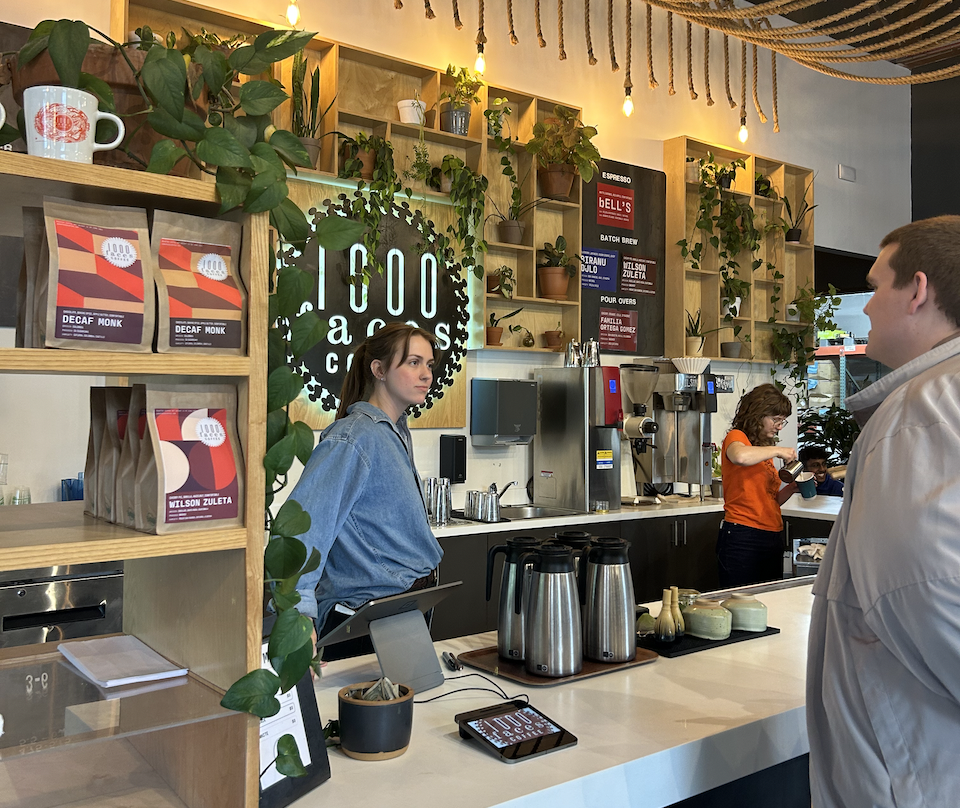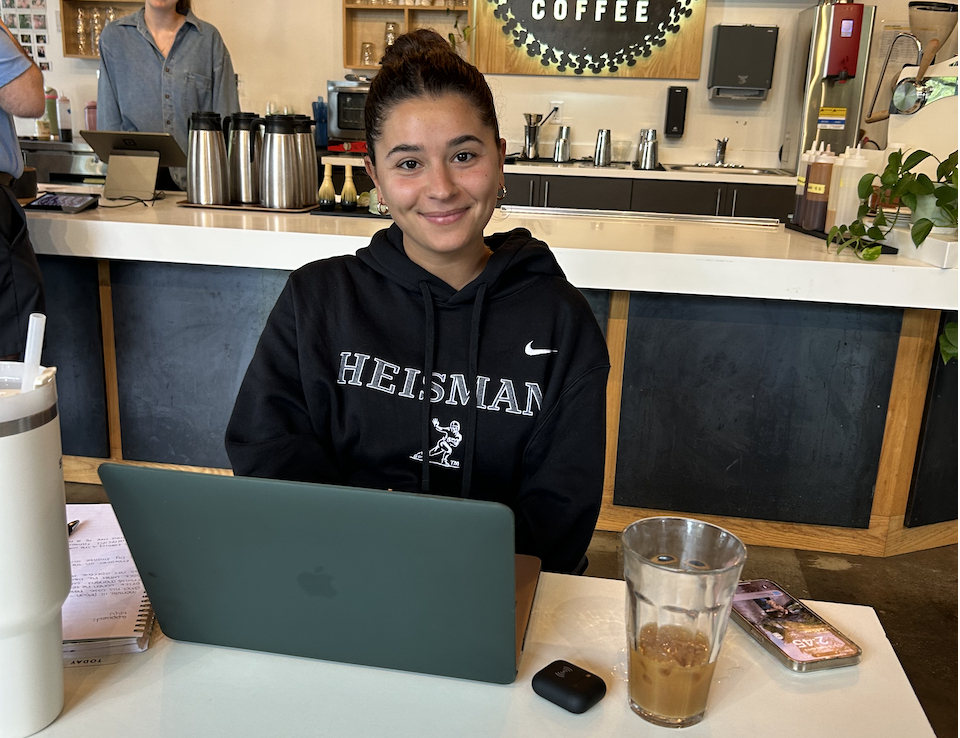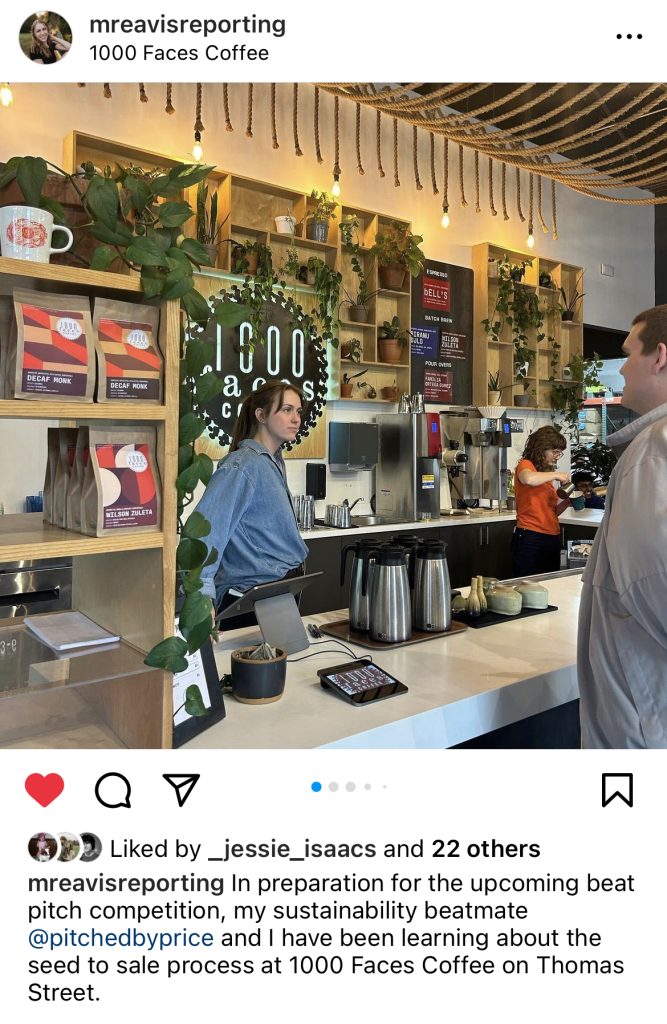From seed to sale: Athens coffee shop prioritizes sustainability and intentionality through personal relationships
By Makenna Reavis

The door to 1000 Faces Coffee swings open as customers file in and out. A line forms at the counter as the Saturday morning rush picks up. On the left side of the cafe, a large window opens up to the roasting room, where large, hand-painted bags of green coffee sit on shelves, ready to be roasted. The bags have traveled from different coffee-growing regions in South and Central America, regions that 1000 Faces coffee director Ben Bowdoin has personally visited and explored
1000 Faces Coffee, located on North Thomas Street, made its mission to craft sustainably and transparently crafted coffee through personal relationships and attention to detail. They have continued this for almost 20 years by continuously visiting their suppliers in South and Central America and providing easy sustainable swaps for customers.
The company was founded in 2006 by Benjamin Myers with a mission to create a completely transparent coffee process from the growing to roasting to brewing.
Part of carrying out that mission is communication with and visits to the farmers that grow the coffee sold at 1000 Faces.
Visiting the farms
Ben Bowdoin, the current coffee director for 1000 Faces Coffee, said that visiting his suppliers is important because it educates him on the coffee supply chain, but also on the lives and grievances of the people who grow 1000 Faces’ coffee.
“Every coffee that we buy, we want to be out of some relationship where we like, actually understand from the beginning to the end, like, where it came from, where it’s going, how much everyone was paid for everything,” Bowdoin said.
Bowdoin’s last visit was last spring. He and two others spent two nights at the house of one of their contacts in Honduras, where they participated in neighborhood barbecues and community while learning about how the coffee they receive is being grown and processed.
“It’s kind of just about trying to be friends with people, and then working with people that we kind of, like, jive with and agree with,” Bowdoin said.
Bowdoin said that the goal for visits to growing locations was 3-4 times a year, but that has not been as much of a reality since 2020 and the onset of the COVID-19 pandemic.
Attention to detail
1000 Faces staff said they bring that intentionality and sustainability from the beginning of the process through to the customer side, focusing on sustainability in every detail.

Connor Bailey is a new barista at 1000 Faces. She said that part of what drew her in was their sustainable practices, including how everything there is either compostable or recyclable.
“They align with my values and lead with, like, sustainability and everything, with, like, trying to be not wasteful,” Bailey said.
One detail that 1000 Faces focuses on is their bagged coffee, with a new bag design being released in the coming weeks. This will be a 100% compostable bag, and 1000 Faces will be running a return program where customers will receive a dollar off of their next bag of coffee when they return a bag.
Bowdoin said that the best way to compost the bags is through Athens’ commercial composting facility, so this return program will help more bags make it there.
Customer experiences
Mary Joeden, a fourth year scientific illustration major at UGA, said she takes advantage of the reusable cup discount that 1000 Faces provides. Customers who bring their own reusable cup rather than using a disposable one receive a dollar off of their purchase. 1000 Faces also sells a reusable cup that customers can use in the shop.
1000 Faces also provides recycling and composting bins next to their trash bins inside of the store. These bins include signage that show what types of items can be placed into each bin.
1000 Faces staff say that they hope their efforts in being intentional and sustainable at every step of the process creates a consistent, quality experience for producers and customers, and customer opinions reflect this.

Noelle Leland, a fourth year psychology major at the University of Georgia from New Jersey, frequents 1000 Faces to study and has been going there since her sophomore year. She said she was drawn in by the convenient location but stayed for the quality of the coffee.
“I would go as far as saying that they have the best quality coffee in Athens that I’ve found,” Leland said, “and, yeah, it definitely matters, I can definitely taste the difference.”

Why I Wrote the Story
My sustainability beatmate and I put several weeks of research into this story. We visited 1000 Faces multiple times to interview baristas, managers, customers, the coffee director, and even the mayor of Athens-Clarke County. We got to personally witness the roasting process at the shop and learn all about where they get the coffee from and when they visit their growers. I had no idea half of what went into the process of creating coffees at 1000 Faces, so I wanted to write this to bring all of the details and intentionality at 1000 Faces into the light.